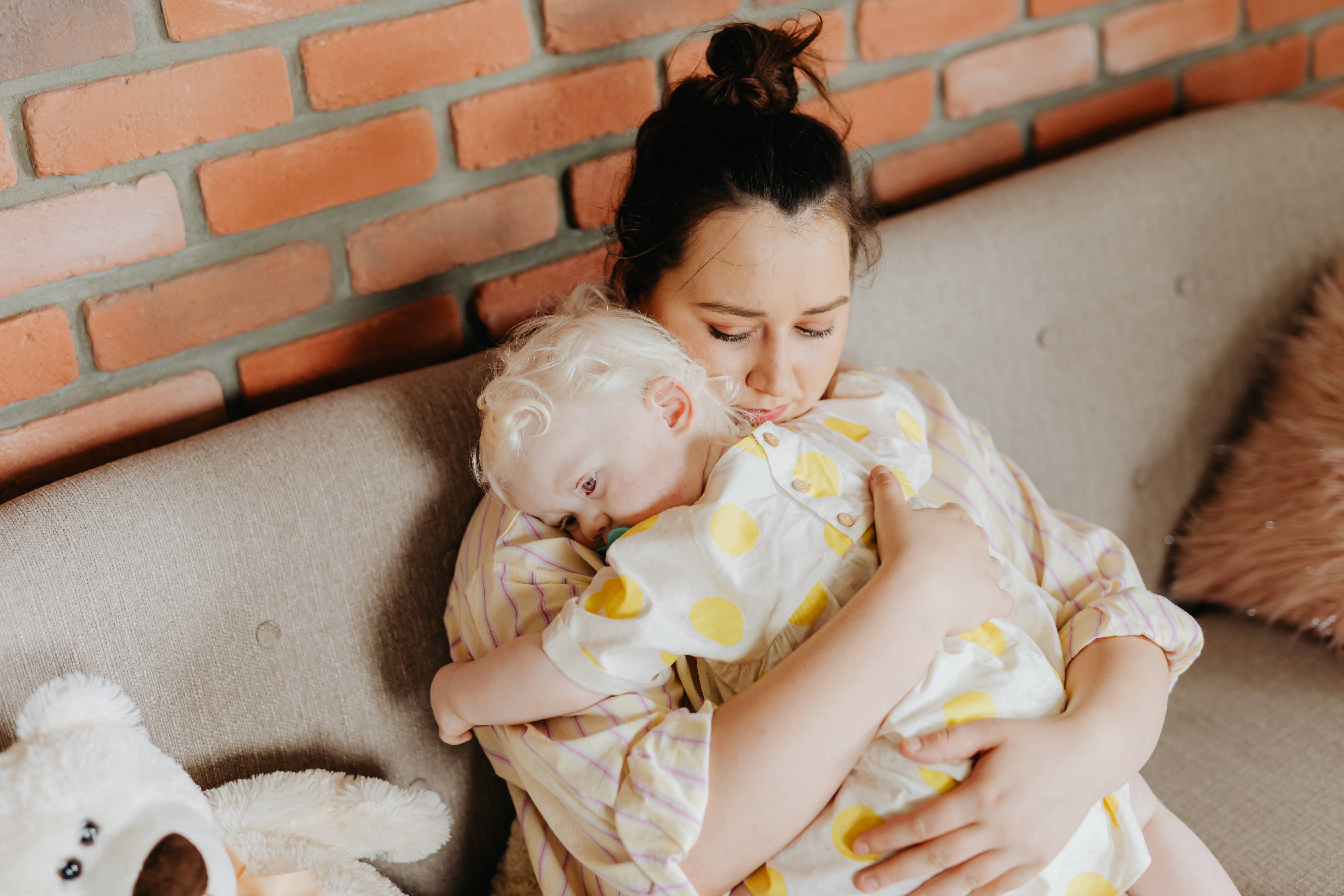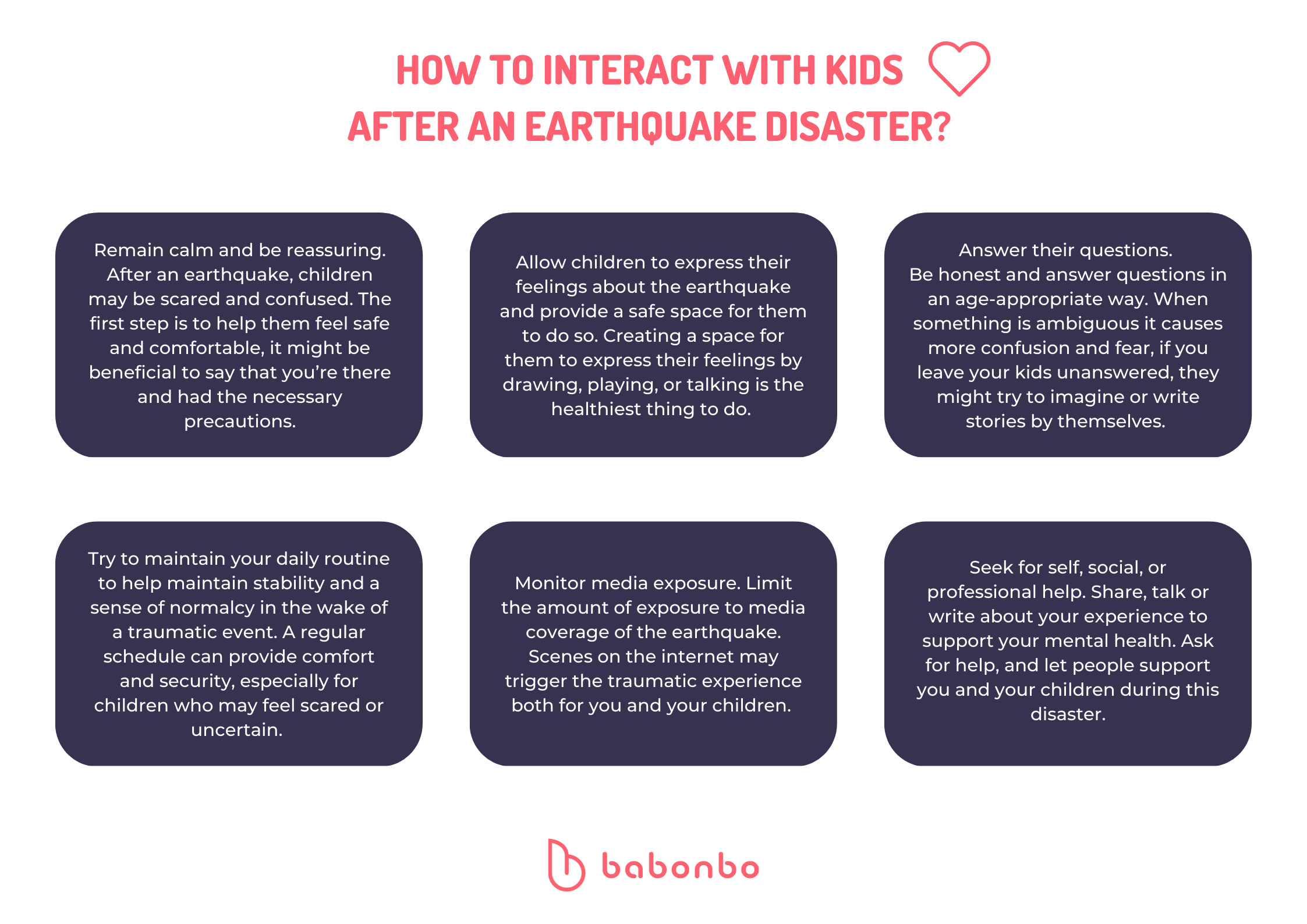
How To Interact with Kids After Natural Disasters?
Any type of natural disaster such as an earthquake, hurricane, or flood might be highly devastating. Either experiencing, hearing, or watching a natural di
Any type of natural disaster such as an earthquake, hurricane, or flood might be highly devastating. Either experiencing, hearing, or watching a natural disaster can be a traumatic experience, especially for children. As a parent, you might want to keep the news to yourself and avoid talking about it with your little ones. However, kids can better cope with a disaster when they understand what is happening around them. Of course, it is highly important to give them basic information to help them understand, without providing unnecessary details that may only trigger their anxiety.
Receiving basic and necessary information about what happened can help children, but it is highly important to keep in mind that graphic details or disturbing may alarm them and cause more distress. Be sure to ask children what questions or concerns they have and try to help them by creating a space for their feelings.
Here are the things you need to consider while interacting with your little one, or any child affected by a natural disaster.
- Remain calm and be reassuring. After an earthquake, children may be scared and confused. The first step is to help them feel safe and comfortable, it might be beneficial to say that you’re there and had the necessary precautions.
- Listen. Allow children to express their feelings about the earthquake and provide a safe space for them to do so. It is not reasonable and healthy to expect them not to feel anything or avoid reality. Instead, creating a space for them to express their feelings by drawing, playing, or talking is the healthiest thing to do.
- Answer their questions. Be honest and answer questions in an age-appropriate way. When something is ambiguous it causes more confusion and fear, if you leave your kids unanswered, they might try to imagine or write stories by themselves. Thus, explaining the situation by avoiding too many details is beneficial for them. Try to explain short and age-appropriate way.
- Try to maintain your daily routine to help maintain stability and a sense of normalcy in the wake of a traumatic event. A regular schedule can provide comfort and security, especially for children who may feel scared or uncertain. Additionally, sticking to a routine can provide structure and help people focus on the tasks at hand, which can help people to remain productive and focused on the recovery process.
- Monitor media exposure. Limit the amount of exposure to media coverage of the earthquake. During the disaster, there might be a lot of scenes on the internet, and even if they reflect reality, it is not healthy and may trigger a traumatic experience both for you and your children to be exposed to those scenes.
- Seek self, social, or professional help. Share your experience with your environment, and talk or write about your experience to support your mental health. Ask for help, and let people support you and your children during this disaster. If needed, seek professional help from a mental health provider.
Interacting with children by considering this advice may help them to understand what’s going on around them and learn how to cope with their feelings. Another important point is your mental health as a parent, caregiver, or guardian. It is also important for you to accept the fact of the disaster and express your feelings. Seek help and call your friends or professionals to disclose your emotions, thoughts, and experience. It is normal to feel stress, anxiety, grief, and worry during and after a disaster. Everyone reacts differently, so accept anyone’s, and your feelings. Don’t ignore your mental health, because taking care of your mental health during an emergency will help you think clearly and react to the urgent needs to protect yourself, your family, and the people around you.


Family Adventures in Rome with Kids: Top Attractions, Baby-Friendly Tips & Easy Day Trips
Rome, the Eternal City, is a fantastic destination for families traveling with children. From ancient ruins to beautiful piazzas and interactive museums, t
Februar 14, 2025
Budapest with Kids: A Family-Friendly Guide to Exploring Hungary’s Capital
Budapest, Hungary’s vibrant capital, is a fantastic destination for families looking to explore rich history, stunning architecture, and kid-friendly activ
Februar 14, 2025
The Perfect Family Vacation in Lisbon: Where to Stay, What to Do, and How to Travel Light
Lisbon, with its colorful streets, iconic yellow trams, and breathtaking viewpoints, is a city that captivates travelers of all ages. For families, it offe
Februar 10, 2025



